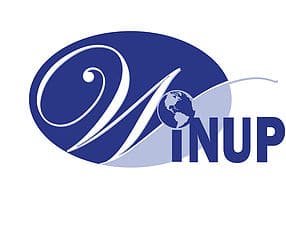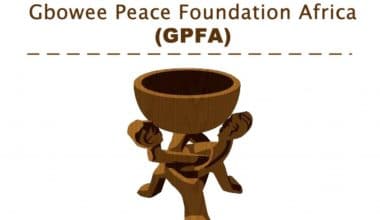We all know that Kwara Poly Post-UTME is one important exam you must take and pass before you gain admission. So, it is really important for you to prepare very well in order to pass the Kwara Poly post UTME. And you can actually prepare using this Kwara Poly Post UTME Past Questions and answers we have for you.
Are you aspiring to be a student of Kwara Polytechnic? Do you want to get the Kwara post UTME past questions and their answers? (Valium) Why not read along with me so that you can know.
Well, this information we are bringing for you will help you out in the upcoming Kwara Post-UTME.
Kwara State Polytechnic was established by a former Military Governor of Kwara State Col. David Bamigboye in 1973. Besides, Kwara State Polytechnic started with 110 students. Also, the school offers the National Diploma and Higher National Diploma in courses at undergraduate levels.
Table of contents
What is the nature of Kwara Poly Post UTME questions?
Well, the test always holds online between 7 am and 7 pm. However, candidates should be mindful of the type of cybercafes they patronize.
You will see the same subjects you wrote in Jamb in the post-UTME. So, if you have written Mathematics, English, Physics, and Biology in Jamb, these are the subjects you should expect in Kwara Poly Post UTME as well.
Check out our: ESUT Post Utme Past Questions And Answers 2024 through this link
Check out our: ESUT Post Utme Past Questions And Answers 2024 Read more
How many questions should I expect in the Kwara Poly Post UTME?
Well, it is very important to know the nature of the Kwara Poly post UTME you want to take. Honestly, it would be best if you got ready for this.
However, you will have to answer 20 questions in 15 minutes. Also, do not forget that this is a CBT (Computer Based-Test). So, if you waste so much on a question, do remember that the time on the computer is reading and once it finishes reading, the questions will submit itself automatically online.
Why you should get the Kwara Poly past questions
Actually, we have noticed that over the years, Kwara State Polytechnic has repeated their post UTME past questions. Honestly, once you get these past questions and answers, it will help you will prepare very well, and you will score very high on the exam. But you can stand out after getting and studying these past questions.
Also, we have gathered past questions and answers from 2008 to date. So, we assure you that the questions you get when you purchase this Kwara Poly Past Questions and Answers are real past questions that you may see during the exam.
How to get Kwara Poly Post UTME Past Questions and Answers
Kwara Poly Post UTME past question cost N2,000 for your subject combination, and to get it, follow the steps below:
STEP 1: Select Your Subject Combination
You will write the same subjects you wrote in UTME (JAMB) for Kwara Poly Post-UTME. So, we have all the subject combinations you wrote in UTME according to the course you applied for.
So, just specify the course you applied for in the description of your payment.
STEP 2: Select Your Payment Method
We have three methods of buying our Kwara Poly Post UTME past questions and answer. The methods include; debit cards, Bank transfers, and direct bank deposits.
The account details are as follows:
Account Name: Silicon Africa Tech Limited
Account Number: 0546392167
Bank Name: GT BANK
STEP 3: Confirmation of Payment
If you choose the Debit Card option, you’ll input your card details and email address. Upon payment, you will get an Email with the past question you have selected in Step One.
If you choose Bank transfer, type in the description of payment: “The Type of Kwara Poly Post UTME Past Question you’re purchasing.” e.g “Kwara Poly Law Past Question.” Then contact the number below or email address with evidence of payment and you will get your past question immediately.
If you choose Direct Bank deposit, make payment to the account details above, then send the following information to the phone number or email below:
1. Depositors Name
2. Teller Number
3. Amount Paid
CONTACT DETAILS: 07012040283
EMAIL: info@worldscholarshipforum.com
Samples of Kwara Poly Post-UTME Past Questions and Answers
English Language
1. Gone are the days when he… enjoy patronage. (A) would(B) will (C) used to (D) could
2. He did not attend the final burial …. (A) rite (B) rights (C) rites (D) right
In the questions below, choose the option nearest in meaning to the word(s) or phrase underlined
3. The culprits will surrender their loot to the customs officials. (A) give away (B) give out (C) give in (D) give up
Mathematics
1. The lengths of the sides of a right-angled triangle are ym, (3y – 1)m and (3y + 1)m, find y. (A) 12 (B) 9 (C) 8 (D) 4
2. Three consecutive positive integers a, b and c are such that b2 = 4(a + c). Find the value of c. (A) 3 (B) 6 (C) 9 (D) 5
3. Find the number of sides of a regular polygon whose interior angle is twice the exterior angle. (A) 5 (B) 6 (C) 8 (D) 9
Chemistry
1. Which of the following gases can be collected by the method of downward delivery? (A) Chlorine (B) Oxygen (C) Hydrogen (D) Ammonia
2. The principal constituents of natural gas is … (A) methane (B) ethane (C) propane (D) butane
3. 0.499g of CuSO4.XH2O, when heated to constant weight gave a residue of 0.346g. What is the value of X? (A) 2.0 (B) 3.0 (C) 5.0 (D) 4.0
Additionally
Physics
1. A car X moving of mass 500kg accelerates at 1ms-2 when the force due to the engine is 600N. (A)(B)(C)(D)
2. Starting from rest a car of mass 1000kg accelerates steadily to 20m/s in 10 sec , what is the average power developed? (A) 0.2kw (B) 4.0kw (C) 10kw (D) 15kw (E) 20kw
3. If two equal charges, each 1C were separated in air by a distance of 1km, what would be the force between them? (A) 2KN (B) 3KN (C) 9KN (D) 10KN (E) 4KN
Biology
1. Ribosomes are found in all living cells. What is their function? (A) cellular respiration (B) synthesis of proteins (C) excretion of waste products (D) intracellular transport
2. An ecosystem is composed of all of the following except (A) Plants (B) Animals (C) Temperature (D) Meadows
3. Carbohydrates are stored in animal cells as (A) glucose (B) glycogen (C) maltase (D) starch





